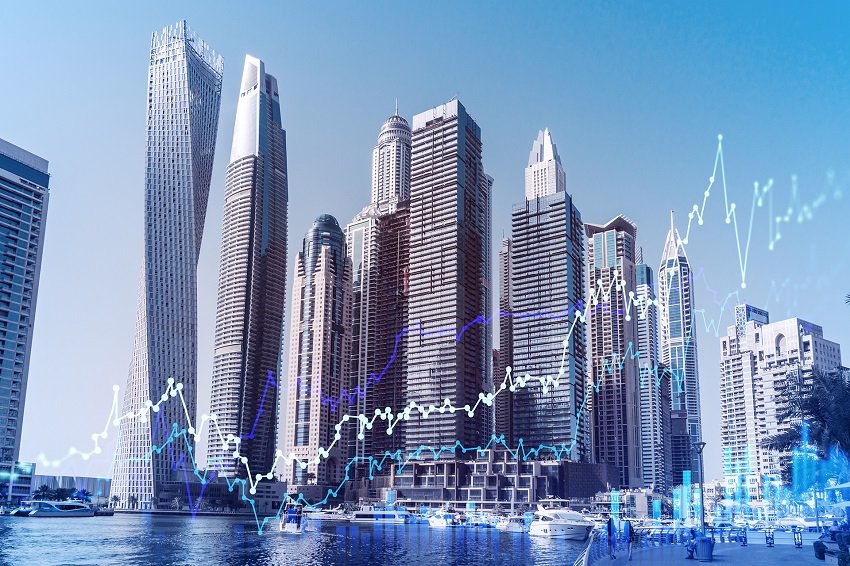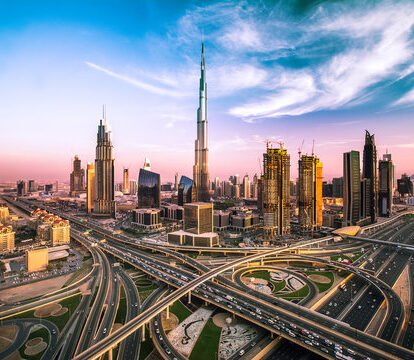The Gulf Cooperation Council (GCC) region has emerged as a global investment hotspot, driven by ambitious economic diversification plans, innovative projects, and substantial government backing. With the growing influence of initiatives such as Saudi Arabia’s Vision 2030, UAE Centennial 2071, and Qatar National Vision 2030, the GCC is shifting its focus from traditional energy-based economies to technology, sustainability, and knowledge-based industries.
As we step into 2025, investors are presented with a wealth of opportunities across emerging sectors, ranging from renewable energy and fintech to real estate and tourism development. This article explores the key investment trends shaping the GCC and highlights the sectors offering the most potential for growth.
1. Renewable Energy: The Green Transition
The GCC is at the forefront of the global energy transition, with governments heavily investing in renewable energy to meet sustainability goals and reduce dependence on oil. The region is leveraging its abundant natural resources—primarily solar and wind energy—to develop large-scale projects.
Key Opportunities:
- Solar Energy Projects: The UAE’s Mohammed bin Rashid Al Maktoum Solar Park and Saudi Arabia’s Sakaka PV Plant are setting benchmarks for solar energy production. Both countries have ambitious plans to expand solar energy capacity further by 2030.
- Hydrogen Economy: Saudi Arabia is pioneering green hydrogen production through its NEOM Green Hydrogen Project, positioning itself as a global leader in hydrogen exports.
- Wind Energy: Oman is investing in large-scale wind farms in Dhofar and beyond, creating opportunities for investors in renewable energy infrastructure.
Why Invest?:
Renewable energy is a core pillar of GCC nations’ sustainability agendas. Investments in this sector align with global ESG (Environmental, Social, and Governance) trends and offer long-term returns as global demand for clean energy rises.
2. Technology and Innovation
Technology is reshaping the GCC economy, with governments promoting digital transformation and fostering tech startups. Investment in areas such as fintech, artificial intelligence (AI), blockchain, and quantum computing is accelerating as the region positions itself as a global hub for technological innovation.
Key Opportunities:
- Fintech: The GCC’s fintech sector is booming, supported by regulatory sandboxes and government initiatives. Startups like Tabby, YAP, and Sarwa are attracting significant funding.
- AI and Smart Cities: Saudi Arabia’s NEOM and the UAE’s Smart Dubai are integrating AI to develop futuristic urban environments. Investors can explore opportunities in AI-powered applications for smart infrastructure, transportation, and public services.
- E-commerce: Online retail is thriving in the post-pandemic era, with platforms like Noon and Namshi leading the way. Logistics, last-mile delivery, and digital payment solutions are lucrative areas for investment.
- Cybersecurity: As digital adoption increases, so do concerns about data security. Companies offering innovative cybersecurity solutions have strong growth potential.
Why Invest?:
The GCC’s focus on innovation and government-backed initiatives ensures a robust ecosystem for technology investors. The region’s young, tech-savvy population and high internet penetration make it an ideal market for digital services.

3. Real Estate: A Thriving Sector
Real estate remains a cornerstone of GCC investments, bolstered by urban development projects and a surge in tourism. High-profile developments like Saudi Arabia’s The Red Sea Project, Dubai’s Expo City, and Qatar’s Lusail City are creating opportunities for investors across residential, commercial, and hospitality segments.
Key Opportunities:
- Tourism-Driven Investments: Projects such as Amaala, Diriyah Gate, and AlUla in Saudi Arabia are transforming the Kingdom into a luxury tourism hub. Similarly, the UAE is focusing on expanding its hospitality sector, with Dubai and Abu Dhabi leading the charge.
- Sustainable Real Estate: Green building initiatives, such as Dubai’s Sustainable City, are gaining traction, providing opportunities in eco-friendly construction and materials.
- Affordable Housing: With growing populations in cities like Riyadh, Jeddah, and Dubai, there is rising demand for affordable housing developments targeting middle-income families.
Why Invest?:
The region’s commitment to large-scale infrastructure projects and its growing reputation as a tourism destination ensure sustained demand for real estate. Tax-free property ownership in some GCC countries adds an additional layer of attractiveness for foreign investors.
4. Healthcare and Life Sciences
The healthcare sector in the GCC is undergoing rapid transformation, driven by population growth, rising health awareness, and government investment in state-of-the-art medical facilities. The pandemic has further accelerated the adoption of digital health solutions, making this a promising sector for investors.
Key Opportunities:
- Telemedicine: Platforms like Okadoc and Sehteq are leading the telemedicine revolution, offering remote healthcare services.
- Pharmaceutical Manufacturing: Governments are encouraging local production of pharmaceuticals to reduce dependency on imports.
- Healthcare Infrastructure: Investment in hospitals, clinics, and diagnostic centers is expanding to meet increasing demand for quality healthcare services.
- HealthTech Startups: AI-driven diagnostics, wearable health devices, and personalized medicine are gaining traction.
Why Invest?:
The GCC’s healthcare sector offers recession-proof investment opportunities, with governments prioritizing healthcare access and quality. The growing adoption of digital health solutions adds an innovative edge to this sector.

5. Tourism and Hospitality
Tourism is a central pillar of economic diversification strategies across the GCC. With billions of dollars invested in mega tourism projects, the region is positioning itself as a global destination for luxury travel, adventure tourism, and cultural experiences.
Key Opportunities:
- Mega Projects: Saudi Arabia’s NEOM, The Red Sea Project, and AlUla aim to attract millions of international tourists. Qatar is capitalizing on its FIFA World Cup 2022 legacy to boost tourism infrastructure.
- Luxury Hospitality: The UAE remains a global leader in luxury hospitality, with opportunities in high-end hotels, resorts, and branded residences.
- Experiential Tourism: Investments in adventure tourism, eco-tourism, and cultural tourism (e.g., in Diriyah and AlUla) are on the rise.
- Entertainment and Events: The rise of events like Riyadh Season and Expo-related activities in the UAE offers lucrative opportunities in the events and entertainment industry.
Why Invest?:
The GCC’s favorable climate for tourism investments, coupled with its focus on world-class infrastructure and high-end experiences, ensures strong growth potential in this sector.
6. Venture Capital and Startups
The GCC’s startup ecosystem is booming, supported by incubators, accelerators, and increasing venture capital activity. Governments and private investors are betting on early-stage startups to drive innovation and create new economic opportunities.
Key Opportunities:
- Sector-Specific Startups: Fintech, edtech, and healthtech startups are particularly attractive to investors.
- Public-Private Collaboration: Initiatives like Saudi Arabia’s Monsha’at and the UAE’s Hub71 provide funding and resources for startups.
- International Expansion: Many GCC startups are expanding into global markets, offering investors high returns on their investments.
Why Invest?:
With government-backed initiatives and a growing pool of talented entrepreneurs, the GCC’s startup ecosystem offers high-growth potential and access to cutting-edge technologies.
Image Courtesy Notice
At The Storiez, we value the efforts of photographers, artists, and content creators. The images featured in our articles are sourced from various news portals and online websites. We strive to ensure proper credit is given wherever possible. If you are the rightful owner of any image used here and would like to request its removal or correct attribution, please feel free to contact us. We respect intellectual property rights and aim to address concerns promptly.

